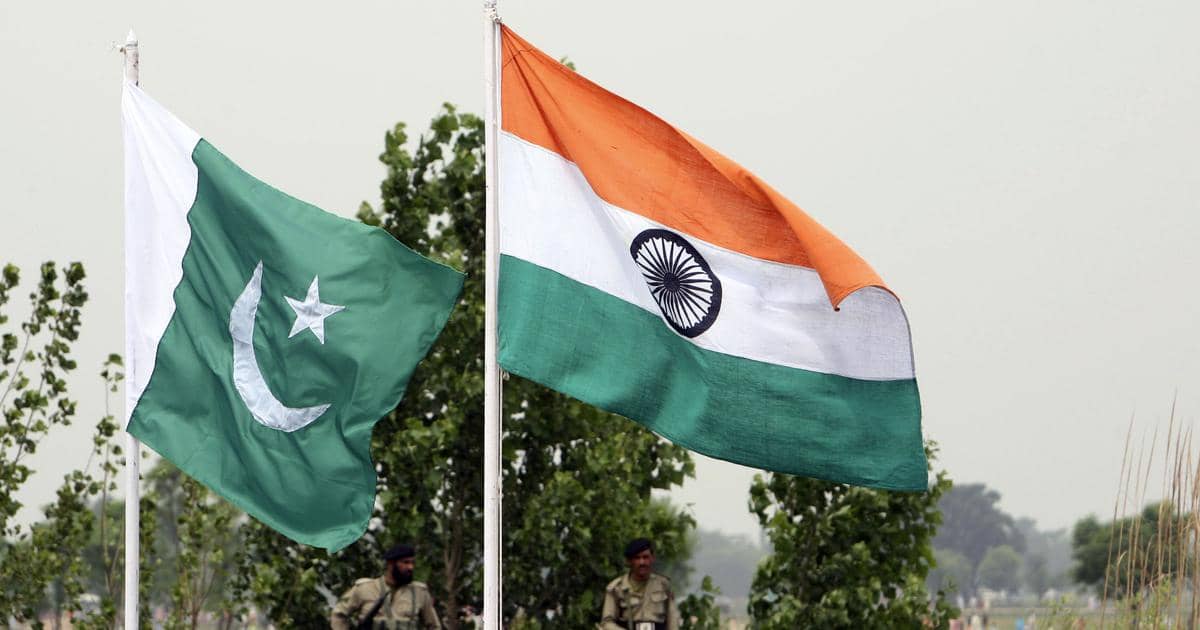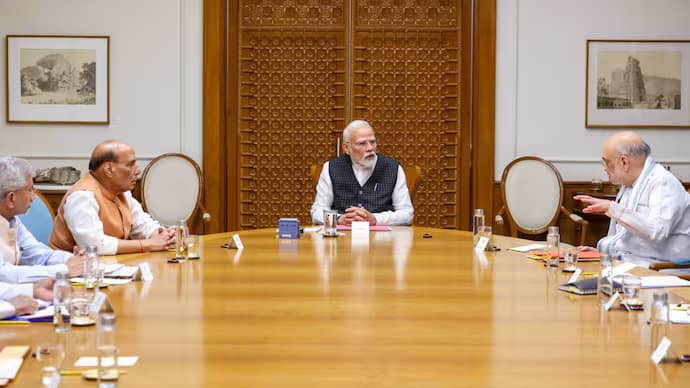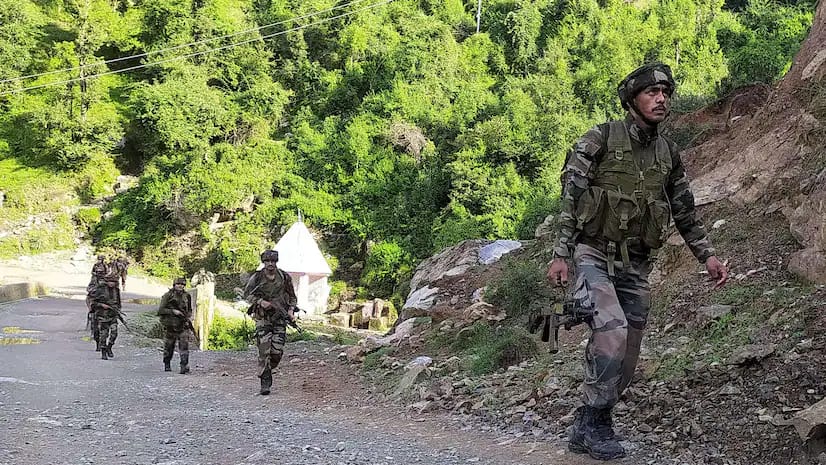The region of Kashmir has once again become the center of global attention following a tragic incident that left 26 innocent tourists dead. The deadly Kashmir Attack not only shook the valley but also sent political shockwaves across South Asia. In response to this horrifying act of violence India has officially downgraded its diplomatic ties with Pakistan escalating tensions between the two nuclear-armed neighbors.
This incident is a grim reminder of the fragile peace that exists in the Kashmir region. The victims were mostly domestic tourists seeking peace and beauty in the hills but instead met with violence that no one could have imagined. What followed was a swift political reaction and a renewed debate on how to ensure safety and stability in the region. BestPrimeNews
The Incident That Changed Everything
On a calm morning in northern Kashmir a group of over 30 tourists were traveling in buses when they were ambushed by heavily armed militants. The attack was brutal and appeared to be well-coordinated. Within minutes bullets were flying and chaos engulfed the area. By the time help arrived 26 tourists had lost their lives and several others were seriously injured.
The Kashmir Attack was immediately condemned by leaders across the world. But for India it was more than just a security failure. It was a clear message that cross-border terrorism continues to pose a threat to national peace.
India’s Strong Reaction to the Kashmir Attack
Following the attack India took strong and immediate actions. New Delhi summoned Pakistani diplomats and delivered a formal note of protest. Within hours the Ministry of External Affairs announced a decision to downgrade diplomatic ties with Pakistan.
This means that India will now reduce the strength of its diplomatic staff in Pakistan and ask Pakistan to do the same. Trade relations already strained by past events have also been affected. The India Pakistan border has seen increased security measures and surveillance.
The Kashmir Attack served as a tipping point for India’s policy towards Pakistan. While past incidents were met with strong words this time action followed almost immediately.
How the Kashmir Attack Impacted the Local Population
The local communities in Kashmir are now dealing with not only the grief of the attack but also the fear that similar incidents could happen again. Tourism had just begun to recover in the region with thousands of visitors coming in during spring. Hotels were booked treks were scheduled and local businesses were finally seeing hope.
After the Kashmir Attack most of the tourists have cancelled their trips. Security forces have increased their presence across the region. Checkpoints are being monitored round the clock and intelligence operations have been ramped up.
This has caused a great deal of anxiety among locals who depend heavily on tourism for their livelihood. Many are calling for more community involvement in maintaining peace and supporting the authorities in identifying possible threats.
Political Reactions from Across India
Political leaders from across the spectrum condemned the Kashmir Attack in the strongest terms. The Prime Minister addressed the nation and expressed deep sorrow for the loss of innocent lives. He also promised that the culprits behind the attack would be brought to justice.
Opposition leaders also stood in solidarity and called for national unity at this time. However there were also calls for a reevaluation of India’s long-standing diplomatic stance with Pakistan. Some leaders demanded the complete cessation of talks until Pakistan takes real action against terror groups operating from its soil.
The Kashmir Attack has once again united political parties on the issue of national security. A rare moment of bipartisan agreement emerged with a focus on protecting citizens and responding strongly to any form of terrorism.
Global Responses to the Kashmir Attack
The Kashmir Attack drew swift international responses. The United States United Kingdom France and several other countries condemned the attack and expressed their condolences to the families of the victims.
Some international observers also raised concerns about how this could affect the already tense relationship between India and Pakistan. The UN urged both nations to maintain peace but also emphasized the need to eliminate terrorism in all forms.
Many global think tanks noted that the Kashmir Attack could influence international policy in South Asia especially in terms of counterterrorism collaboration and regional security strategies.
A Look Back at Previous Kashmir Attacks
This is not the first time that violence has erupted in Kashmir. The region has seen numerous similar incidents over the years. From the Pulwama attack in 2019 to the Uri incident in 2016 the Kashmir Attack is part of a long and painful history.
Each of these attacks has led to heightened tensions between India and Pakistan. However this recent event has prompted one of the strongest diplomatic responses from India in recent times.
Understanding the pattern of these attacks is essential in developing better counter-terror strategies and preventing future incidents.
The Strategic Shift in Indian Foreign Policy
The decision to downgrade diplomatic ties is a major foreign policy move. It indicates that India is no longer willing to rely solely on talks or international mediation when it comes to national security. The Kashmir Attack has triggered a change in tone and strategy.
Experts believe that this shift could affect South Asia’s political landscape in the long term. With India taking a firmer stance there may be new alignments in regional diplomacy and defense partnerships.
Countries like the US and Australia that share strategic ties with India are likely to watch these developments closely. The Kashmir Attack may even impact regional economic cooperation and global investment in the area.
Human Stories Behind the Headlines
Behind the statistics and political headlines are human stories. The victims of the Kashmir Attack were families on vacation couples on honeymoon and students exploring nature. Each one had dreams hopes and plans that were brutally cut short.
One survivor spoke about how her group had just finished visiting a local temple and was on the way to a nearby valley when gunfire broke out. She lost two of her friends in the incident.
These stories remind us of the cost of violence and the urgency of finding lasting peace in the region. It is not just a political issue. It is a deeply human one.
What Happens Next
With diplomatic ties downgraded and security measures tightened the future remains uncertain. Will this lead to lasting change Or will the Kashmir Attack become another chapter in the long book of violence
India has made its stance clear. Now the global community is watching Pakistan’s next move. If real action is not taken against terror groups the rift between the two countries may grow even deeper.
Meanwhile the focus should remain on ensuring justice for the victims rebuilding local trust and preventing future attacks.
The Path Toward Peace
Despite the anger and grief there is still hope. Many civil society groups in both India and Pakistan are calling for peace and cooperation. They believe that dialogue should not be abandoned completely but must be supported with real actions against violence.
The Kashmir Attack has shown once again that peace in the region is fragile. But it has also sparked a renewed demand for security reform better intelligence sharing and stronger global cooperation against terrorism
The History Behind India and Pakistan’s Kashmir Conflict
To fully understand the significance of the Kashmir Attack and the downgrade in diplomatic ties we must revisit the long and troubled history between India and Pakistan over the Kashmir region.
The conflict began in 1947 during the partition of British India. While most princely states chose to join either India or Pakistan the ruler of Kashmir hesitated. Eventually the state acceded to India following tribal invasions supported by Pakistan. This led to the first Indo-Pak war. Since then the two countries have fought multiple wars and engaged in several stand-offs over this region.
Kashmir is not just a piece of land. It holds emotional historical and religious value for people on both sides of the border. Over the decades the conflict has caused thousands of deaths including both civilians and military personnel. Each Kashmir Attack adds another layer of pain and resentment deepening the already complex relationship between the two nations.
Economic Impact of the Kashmir Attack
The immediate human loss caused by the Kashmir Attack is devastating. But there is also a significant economic toll that follows such incidents especially for a region like Kashmir that relies heavily on tourism agriculture and small businesses.
Tourism is one of the main sources of income for thousands of families in Kashmir. From taxi drivers to hotel owners from artisans to tour guides many people depend on visitors to survive. When news of the Kashmir Attack broke travel agencies reported a wave of cancellations. Flights to Srinagar dropped. Hotels saw bookings fall to zero. Local vendors who sell crafts dry fruits and traditional garments saw their income disappear overnight.
Beyond tourism the attack also affects investor confidence. Kashmir has always faced challenges in attracting large-scale investment due to political instability. This recent attack further damages the business environment making it harder for the region to grow economically.
Media Coverage and Public Perception
The Kashmir Attack was widely covered by national and international media. News channels ran non-stop coverage showing disturbing images of the aftermath and interviews with survivors. While the coverage helped bring attention to the gravity of the situation it also sparked debates about the role of the media in conflict zones.
Some felt that the media was sensationalizing the incident while others appreciated the honest reporting. The Kashmir Attack also led to intense discussions on social media platforms where citizens shared their grief anger and fears.
Public perception of Pakistan took a major hit in India. Many Indians believe that attacks like these are possible only because of the continued shelter provided to militant groups across the border. This has created even more pressure on the Indian government to maintain a tough stance and demand accountability.
Reactions from the Kashmir Valley
The people of Kashmir are no strangers to violence but every Kashmir Attack leaves a new wound. The residents are stuck between external aggression and internal tension. This recent tragedy has stirred deep emotions.
There is fear that the region might be further militarized which could disrupt daily life. Schools and colleges were closed in the days following the attack. Businesses remained shut in mourning. The local administration has also requested support from civil society to help victims’ families and maintain calm in the region.
Despite the grief some people are also calling for peace. They believe that only through unity and understanding can the region hope for a better future. They are tired of being caught in the middle of political games and violence.
Role of Militant Groups and Cross-Border Terrorism
Investigations into the Kashmir Attack point toward involvement by trained militants who are believed to have crossed over from Pakistan-controlled areas. Over the years several groups operating from across the border have been accused of launching similar attacks.
These groups use guerrilla tactics to target civilians and security forces with the aim of destabilizing the region. They often seek to spread fear and provoke political reactions. The Kashmir Attack fits this pattern and further confirms fears about cross-border terrorism.
India has long demanded that Pakistan dismantle terror infrastructure operating within its territory. While there have been occasional crackdowns most of these groups continue to operate with impunity. This has severely damaged trust between the two countries and makes diplomatic engagement almost impossible.
Impact on India’s Foreign Relations
The Kashmir Attack and India’s strong reaction have caught the attention of international observers. Countries like the United States Russia France and Australia have issued strong statements condemning the violence and supporting India’s right to defend its people.
India’s diplomatic strategy has shifted in recent years. Instead of relying solely on bilateral talks with Pakistan it is now focusing on building stronger global alliances. After the Kashmir Attack India reached out to several countries to brief them on the incident and gain international support.
This shift in strategy could result in Pakistan facing more global scrutiny. There is a possibility that India may push for sanctions or diplomatic isolation of Pakistan if the international community does not see real action against terror groups.
Security Reforms Following the Kashmir Attack
One of the most urgent needs following the Kashmir Attack is a reform of security operations in the region. The attackers managed to ambush a group of tourists despite multiple security advisories and checkpoints.
This has led to questions about intelligence gathering and sharing between different agencies. There is a growing demand for better coordination more advanced surveillance systems and community policing models that involve local populations.
Security forces have increased patrols in tourist-heavy areas. More drone monitoring and satellite-based alerts are being considered. Special training programs for handling high-risk zones have been launched in several districts.
Role of Youth and Education in Peacebuilding
Many believe that the long-term solution to prevent tragedies like the Kashmir Attack lies in education and youth engagement. The region has a large population of young people who often find themselves without proper opportunities or guidance.
By investing in education skill development and employment India hopes to create a more stable environment where the youth feel connected to the nation and motivated to contribute positively. Educational institutions are now incorporating peace education and conflict resolution training in their programs.
There are also several youth-led initiatives aimed at promoting peace and dialogue. These young leaders serve as voices of change and play a key role in reshaping narratives about Kashmir.
Religious Harmony and Community Support
Kashmir is a region with rich cultural and religious diversity. The Kashmir Attack has reignited efforts to promote interfaith dialogue and unity among different communities.
Local religious leaders have come forward to condemn the violence and urge followers to remain calm. Temples mosques and churches held prayer services in memory of the victims. This show of solidarity has brought communities closer even in the face of great sorrow.
Religious institutions have also partnered with NGOs to provide support to the affected families including medical help financial aid and counseling services.
Diplomatic Challenges Ahead
Downgrading diplomatic ties is a major move but it also comes with its own set of challenges. Communication between India and Pakistan is now more limited. This makes it harder to de-escalate future tensions or resolve emergencies.
The Kashmir Attack has made it almost impossible to resume peace talks in the near future. Trust is at an all-time low. India insists that no meaningful dialogue can occur unless Pakistan acts decisively against terror groups.
Experts warn that continued hostility could lead to unintended military escalations. There is a pressing need for backchannel diplomacy supported by neutral third parties to keep communication alive.
The Humanitarian Response
In the aftermath of the Kashmir Attack many humanitarian groups stepped up to provide assistance. Emergency response teams offered medical support and helped evacuate survivors. NGOs arranged shelter food and legal aid for families affected by the tragedy.
Counseling centers were also set up to help individuals deal with the trauma. Special support was extended to children and elderly survivors who often struggle to process such traumatic events.
The local administration announced compensation packages for the families of those killed and injured. Still the emotional damage is long-lasting and cannot be healed with money alone.
Cultural Losses and Social Trauma
The Kashmir Attack is not just a political or military event. It is a cultural wound. It affects how people view the region how they connect with its heritage and how they carry forward its traditions.
Artists poets musicians and writers have expressed their grief through various forms. Many have dedicated works in memory of the victims. These cultural expressions play an important role in healing society and promoting peace.
Technology and Counterterrorism
Modern technology can play a major role in preventing future Kashmir Attacks. Artificial intelligence drone surveillance data analytics and facial recognition are tools that can improve intelligence operations.
India has started to invest in high-tech solutions that allow real-time tracking and faster response times. Smart cameras and automated alert systems are being installed in sensitive areas. These technologies are designed to detect unusual behavior and trigger early warnings.
However there is also a need to balance security with privacy. Citizens must feel safe without feeling watched. Public trust in these systems is key to their success.
Final Thoughts
The Kashmir Attack that claimed 26 lives has left a deep mark on the region and the nation. It is a painful reminder of the dangers posed by terrorism and the importance of strong governance. It also highlights the resilience of the Indian people and their commitment to peace despite repeated setbacks.
India’s response to the Kashmir Attack by downgrading ties with Pakistan shows a firm resolve to protect its people and seek justice. But it also opens new challenges on the diplomatic and security front.
The path forward will not be easy. But with continued efforts from the government civil society and international partners there is hope that this tragedy can be a turning point toward lasting peace and stability in Kashmir. BestPrimeNews



